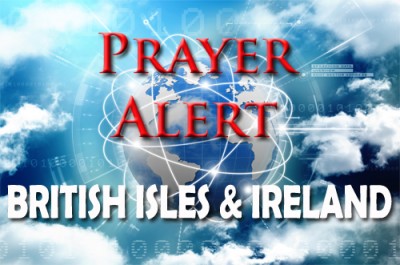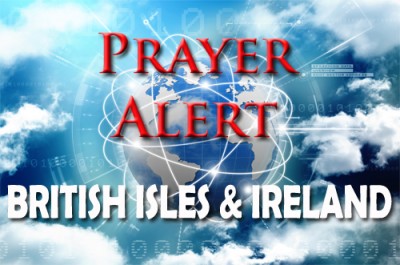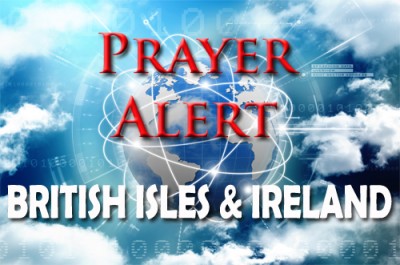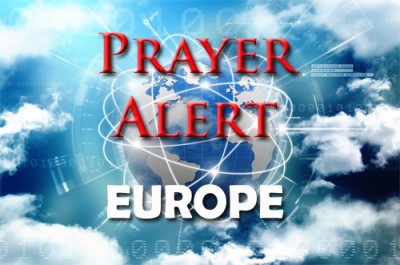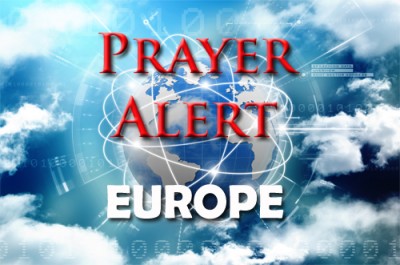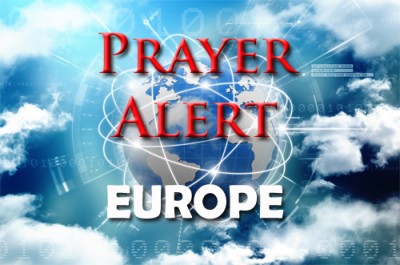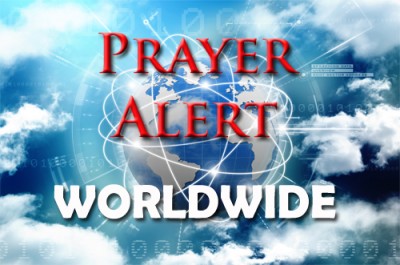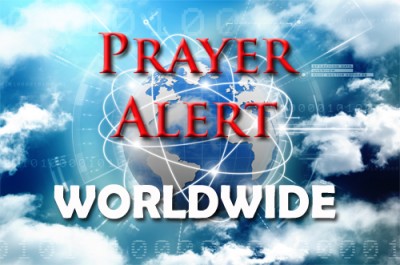Synod: Methodist unity plans
02 Feb 2018Anglo-Catholics warn that proposals to end the 200-year-old split with Methodism 'threaten the fundamentals' of the CofE. A motion will be debated at its General Synod to allow ministers from each church to practise in the other's. If passed, it would be ‘a profound sign of reconciliation, a healing of wounds that go back to the origins of Methodism in the 18th century,' says the Bishop of Coventry. However the catholic wing of the Church places great importance on churches being led by bishops who follow on from Jesus' apostles in ‘apostolic succession’. If the plans are passed by the synod next week and by the Methodist Church in the summer, the two churches will join forces and combine resources in areas where there are challenges in sustaining a Christian presence. It will also mean that for the first time ever, Methodists in the UK will have a bishop of their own.
Salvation Army - living with dementia
02 Feb 2018The Salvation Army has launched a dynamic programme for people with dementia which uses singing to help them connect with others and bring back memories. The scheme, called Singing By Heart, uses a mix of popular hymns such as 'Joy in my Heart' and popular songs like 'Moon River'. Each song (which begins with a Bible passage and finishes with a prayer) has been carefully selected to ensure it is fondly recognised by the people in the groups. It is widely acknowledged that music can trigger past memories and feelings in those living with dementia. The sessions are designed to encourage communication, recollection of memories, and happy thoughts for those taking part. It is also hoped they will benefit carers by giving them time to relax, make friends, and share experiences.
Community leaders, unions and churches are backing a call for Manchester United to increase the pay of workers employed by contractors, such as waitresses and cleaners, noting a ‘grotesque pay difference’ between their wages and players' salaries. On 1 February Manchester citizens handed a letter to the club, urging it to take a ‘community-first business approach’ to ensure that the cost of living is met for low-paid workers. The group said that if new signing Alexis Sanchez is paid £400,000 a week, as some have reported, it will take him just 82 minutes in a game to earn the annual salary of a low-paid stadium worker. Group chairman Rev Ian Rutherford, minister at Methodist Central Hall, Manchester, said, ‘As the winter transfer window closes many workers at Old Trafford will be choosing between putting the heating on or a hot meal.’
Intercessor Focus: Russian elections
02 Feb 2018In 2017 anti-Putin rallies attracted thousands in remote regions where people opposed Kremlin-run politics and called for credible opposition to be allowed to stand in elections. Alexei Navalny planned to face President Putin in March’s Presidential election, but was banned after dubious fraud accusations. On 28 January he was freed from a twenty-day jail term for organising anti-Putin protests, but was re-arrested the same day. Thousands protested against government corruption outside the Kremlin and across Russia, calling the election a farce and urging people not to vote. Kremlin-controlled media are not covering the protests. Putin is expected to win, but his main concern is getting enough people voting to make the election appear credible. For INSIGHTS into unethical, corrupt elections due in 2018 click the ‘More’ button.
Europe to forcibly repatriate Iraqis
02 Feb 2018European countries are to send Iraqi refugees back to Iraq if their asylum cases are rejected. Baghdad said returning them should be voluntary, not compulsory. Ivan Sahda Moshi has been hiding at a friend’s house in Gothenburg since 1 December, 2017, when a Swedish ruling demanded he return to Iraq. ‘I hope my case is looked over again,’ said Moshi, a Christian who fled Iraq in 2007. He fears returning, as militias threatened to kill him because he worked with US forces; also Christians are a threatened minority in Iraq. In a similar case, Hassan Amer’s asylum request was rejected by Austrian authorities. He submitted an appeal and is waiting for a new hearing so that he can explain his position. Media reporting about forcible repatriation is terrifying Iraqi asylum seekers.
Irish referendum on abortion by end of May
02 Feb 2018Abortions are illegal in Northern Ireland and the Republic of Ireland. There is a new wave of youth-driven campaigning on both sides of the abortion argument, which will come to a head over the next few months now that the Irish government has confirmed it will hold a referendum on reform of the country’s strict anti-abortion laws by the end of May.
A 2009 prayer still relevant worldwide
02 Feb 2018The following is a shortened version of a prayer given at the opening session of the Kansas Senate. ‘Heavenly Father, we ask your forgiveness and seek your direction and guidance. Your Word says, “Woe to those who call evil good”, but that is what we do. We have lost spiritual stability and reversed our values. We ridicule the truth of Your Word and call it pluralism; we worship other gods, calling it multiculturalism; we endorse perversion, calling it alternative lifestyle; we exploit the poor, calling it a lottery; we reward laziness with welfare; we kill our unborn, calling it choice; we neglect disciplining our children, calling it building their self-esteem; the abuse of power is called politics; we embezzle public funds, calling it expenses; and we call bribery ‘sweets of office.’ Coveting others’ possessions is called ambition, and pornography is called freedom of expression. We ridicule our forefathers’ values, calling it enlightenment. Search us, O God, and know our hearts; cleanse us from every sin and set us free. Amen!’
Afghanistan: unsaved people are dying
02 Feb 2018Bombings are so frequent, the media hardly notice. Last week's assault on Kabul’s luxury hotel received attention because some westerners were victims. Days later, a car bomb killed 100+; last month a suicide bomber killed 41 and a truck bomb killed 150. Afghans live this reality daily. But the greatest conflict is not terrorism, poverty, or drugs. It is spiritual. 99.9% of the population are Muslim, and 72 people groups do not have the Gospel. A missionary writes, ‘A dear sister was murdered in the Kabul hotel bombing, then two days later the office of an NGO working here for many years was attacked and many were killed. This increase in armed aggression against foreigners and NGOs needs re-evaluation by Christian missions. Please pray for wisdom as to how we can improve the safety of our workers, and for much-needed peace and security in the country. There are serious differences between the governor in a northern province and the president. Tension is rising, and there are fears of a feud within the government. Pray that this will be stopped.’
